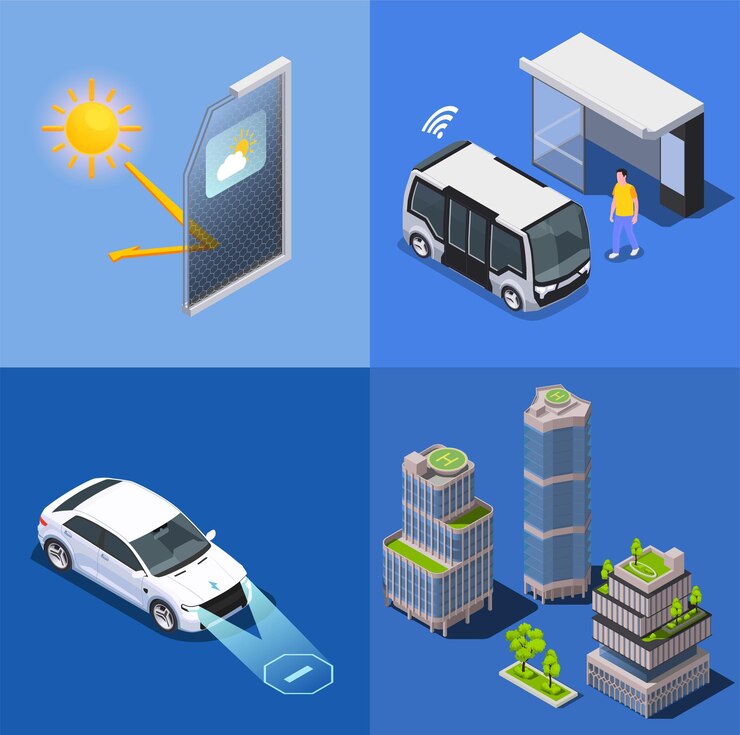
From Self-driving Cars to Electric Vehicles: The Top Innovations in Automotive Technology
The automotive industry has seen significant technological advancements in recent years, with innovations ranging from self-driving cars to electric vehicles. These breakthroughs have not only transformed the way we drive but have also had a positive impact on the environment. In this article, we will explore some of the top innovations in automotive technology and how they are shaping the future of transportation.
The Future of Automotive Technology: What to Expect
The automotive industry has always been at the forefront of technological advancements, and the future is looking even more exciting. From self-driving cars to AI-powered vehicles, the possibilities for automotive technology are endless. So, what can we expect from the future of automotive technology?
One of the most significant advancements in the automotive industry is the development of self-driving cars. While autonomous vehicles are not yet mainstream, numerous companies are investing in the research and development of this technology. The goal is to create a fleet of cars that can operate safely and efficiently without human intervention. Self-driving cars have the potential to revolutionize transportation, making it more convenient, safer, and less dependent on individual car ownership.
Another exciting trend in automotive technology is the integration of artificial intelligence (AI). AI technology can enhance several aspects of driving, such as navigation, driver assistance, and predictive maintenance. For instance, AI-powered navigation systems can provide real-time traffic updates, suggest alternate routes, and even analyze a driver's behavior to offer personalized recommendations.
Electric Vehicles: The Game Changer in Automotive Technology
Electric Vehicles: The Game Changer in Automotive Technology The automotive industry is at the dawn of a new era, with electric vehicles (EVs) emerging as the game changer in automotive technology. With increasing concerns about climate change and the need for sustainable transportation, EVs have gained significant traction in recent years. This article explores the advantages of electric vehicles and how they are revolutionizing the way we drive.
One of the primary benefits of electric vehicles is their positive impact on the environment. Unlike traditional gasoline-powered vehicles, EVs produce zero emissions, which means they do not contribute to air pollution or greenhouse gas emissions. By switching to electric vehicles, we can significantly reduce our carbon footprint and work towards a cleaner and greener future.
Another advantage of EVs is their cost-effectiveness in the long run. While the upfront cost of an electric vehicle may be higher compared to a conventional car, the operational and maintenance costs are significantly lower. Electric vehicles have fewer moving parts, eliminating the need for frequent maintenance and costly repairs. Furthermore, the cost of electricity is generally lower than that of gasoline, resulting in lower fuel expenses for EV owners.
In addition to being environmentally friendly and cost-effective, electric vehicles offer an enhanced driving experience. EVs have instant torque, which means they provide quick acceleration and a smoother ride. Furthermore, their silent operation eliminates noise pollution, resulting in a quieter and more peaceful driving experience. Additionally, many electric vehicles feature advanced technologies and innovative features, making them futuristic and appealing to tech-savvy individuals.
The widespread adoption of electric vehicles also has significant implications for the energy sector. As more countries shift towards renewable energy sources, EVs become even more sustainable. Electric vehicles can be charged using clean and renewable energy, such as solar or wind power, further reducing their environmental impact. Moreover, the integration of EVs into the power grid can enable vehicle-to-grid (V2G) technology, allowing EV batteries to store excess electricity and supply it back to the grid during peak demand periods.
To support the growth of electric vehicles, governments worldwide are implementing various incentives and initiatives. These include tax credits and rebates for EV purchases, the development of charging infrastructure, and regulations promoting the adoption of electric vehicles. These measures aim to encourage consumers to switch to electric vehicles and establish a robust electric vehicle market.
While electric vehicles have made significant progress in recent years, there are still some challenges to overcome. One of the primary concerns is the limited range of electric vehicles compared to traditional cars. However, advancements in battery technology and the establishment of a widespread charging network are addressing this issue. Moreover, as the demand for electric vehicles increases, manufacturers are continuously improving their vehicles' range and charging capabilities.
Electric vehicles are undoubtedly the game changer in automotive technology. They offer numerous benefits, including environmental sustainability, cost-effectiveness, and an enhanced driving experience. As the world increasingly recognizes the urgency of addressing climate change and transitioning to cleaner forms of transportation, electric vehicles are set to revolutionize the automotive industry. By embracing EVs, we can pave the way for a more sustainable and carbon-neutral future.